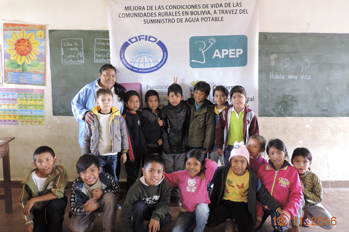 On 31 January, a project that the FPSC has developed in 8 rural towns in the department of Santa Cruz, Bolivia, has been completed and has allowed more than 20,000 people to have access to the human right to water.
On 31 January, a project that the FPSC has developed in 8 rural towns in the department of Santa Cruz, Bolivia, has been completed and has allowed more than 20,000 people to have access to the human right to water.
The project “Improving living conditions for rural communities in Bolivia through targeted water supply interventions” financed by OFID and carried out in consortium with the Bolivian NGO APEP has been a clear response to the serious needs and shortcomings existing in the area.
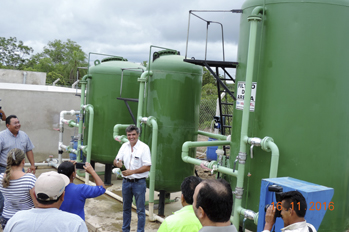 Despite the various difficulties encountered in the beginning (the distance between populations, the then recent appointment of a local authority after a complicated electoral process…), the project has achieved its goal of improving availability and access to drinking water, highly demanded by the population, through these actions:
Despite the various difficulties encountered in the beginning (the distance between populations, the then recent appointment of a local authority after a complicated electoral process…), the project has achieved its goal of improving availability and access to drinking water, highly demanded by the population, through these actions:
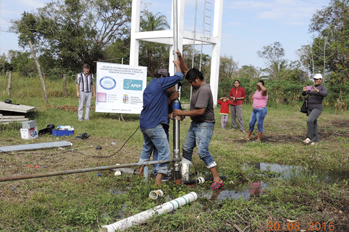 • Installation of piped water distribution networks that carry water to homes.
• Installation of piped water distribution networks that carry water to homes.
• Construction of water purification plants in the largest communities (San Rafael, San Antonio and Samaipata), with a capacity of more than 50,000 liters / hour.
• Drilling of wells in the smaller towns (Morebiti, El Pilar, La Ripiera, Villa Enconada and Nueva Esperanza) providing abundant safe water to the population.
• Construction of elevated water tanks with capacity for 20,000 liters.
In addition, for the sustainable management of water resources, Potable Water
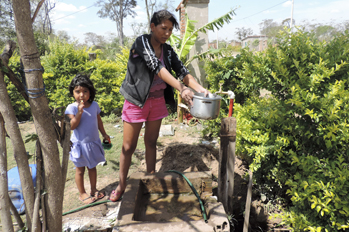 Committees have been created by the beneficiaries themselves, ensuring the continuity in time of the achievements, and has trained the population in basic hygiene and rational use of water.
Committees have been created by the beneficiaries themselves, ensuring the continuity in time of the achievements, and has trained the population in basic hygiene and rational use of water.
Guaranteeing access to drinking water, the project has had a huge social impact by significantly improving the quality of life of families, as the conquest of this right has opened the door to others, such as health and education:
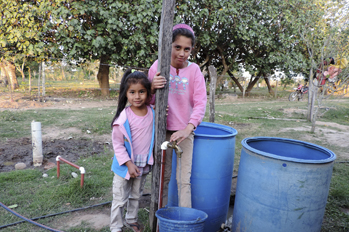 Doña Candelaria Anduíra is of Guaraní ethnicity of the Indigenous Community of La Ripiera. She barely speaks Spanish, but with tears in her eyes she remembers the struggle of her people to survive in an environment without water: “Before they drilled the well and installed the system that carries water to our homes, our life was very hard, Especially for women, that we had to travel up to five miles a day to bring water from a glen. The water smelled bad and our children were sick, but there was nothing else… In addition, carrying water in drums was a very heavy job that left us no time for other tasks. We lived almost like animals… trying to survive. Now it’s different. We receive water by pipes in our homes. The water is rich, crystal clear… and it does not hurt children! Now they can go to school every day, and when they come back I can give them time because I do not have to go for water anymore.”
Doña Candelaria Anduíra is of Guaraní ethnicity of the Indigenous Community of La Ripiera. She barely speaks Spanish, but with tears in her eyes she remembers the struggle of her people to survive in an environment without water: “Before they drilled the well and installed the system that carries water to our homes, our life was very hard, Especially for women, that we had to travel up to five miles a day to bring water from a glen. The water smelled bad and our children were sick, but there was nothing else… In addition, carrying water in drums was a very heavy job that left us no time for other tasks. We lived almost like animals… trying to survive. Now it’s different. We receive water by pipes in our homes. The water is rich, crystal clear… and it does not hurt children! Now they can go to school every day, and when they come back I can give them time because I do not have to go for water anymore.”
In addition, families of peasants who lived alongside their land have settled in urban centres, and with the arrival of this new population, social services have also increased, such as the provision of new classrooms in schools, medical equipment and regular public transport. It is a clear example of how access to the human right to water has a positive impact on the development of populations.

